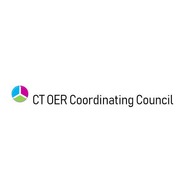
(View Complete Item Description)
The following document has been created by the First Year Studies Department at Housatonic Community College. Many of the YouTube videos that are included have Standard YouTube licenses, which allows the sharing of links by educators; each has been attributed to their creator. The ancillary materials are organized by chapter and include discussion questions, journaling prompts, classroom activities, assessments, projects, and rubrics. This collection is CC-by 4.0; faculty may revise, remix, reuse, retain, and redistribute as needed, if the work is attributed appropriately. Some assignments or activities correspond directly to page numbers in the College Success text and others refer to the chapter in its entirety. Faculty will want to adjust some assignments to reflect software purchased by their respective colleges that perform the same functions as software used by Housatonic Community College. Housatonic Community College is not receiving money to promote the software that are within the document. The names of the software are in the document to provide other faculty context for the activity, assignments, or projects.
Material Type:
Activity/Lab,
Assessment,
Homework/Assignment,
Teaching/Learning Strategy
Author:
Jennifer Nohai-Seaman




















